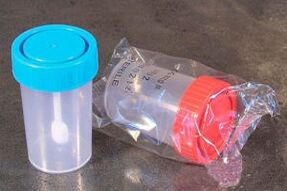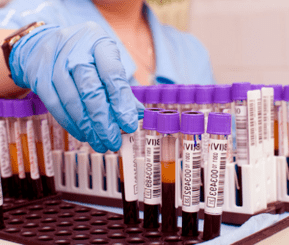
Adult parasite testing is a reliable method for detecting intestinal and other forms of helminth infection. Depending on the results obtained during the study, a specialist will prescribe a suitable treatment.
Perform parasite testing on a regular basis, not when symptoms suggest the presence of worms. Similar studies are needed in both children and adults.
basic method
Carl

The traditional way to detect human worms is to analyze feces. During the study, specialists checked the fecal fragments for the presence of parasite eggs. For the most reliable results, perform at least 2-4 studies every few days.
It can identify parasites such as:
- nematodes or roundworms;
- tapeworms (tapeworms);
- Trematodes (flukes).
This analysis of parasites is very simple and the reliability of the results cannot be guaranteed.
For reliable results, it is best to send the stool sample to the lab within 45 minutes of having a bowel movement. If this is not possible, the container with the sample can be stored in the refrigerator, but not for longer than 8 hours.
Histology Collaborative Program
The next method used to diagnose adult worms is the histological synergy procedure. This study involved microscopic analysis of stool composition based on the study of stool slices. Such a procedure would reveal the presence of worm larvae, their body fragments, and mature individuals.
The disadvantage of this technique is that it cannot determine the specific type of parasite that developed in the human body.
blood

The most effective are studies based on patient blood. This analysis identifies antibodies and antigens in the blood against certain types of parasites. It also provides information on worm type, reproductive capacity and numbers.
As a worm invasion is characterized by the release of the parasite's toxic waste, the composition of the blood changes. This made doctors suspect the presence of worms.
A variant of this study is the enzyme immunoassay.
The sensitivity of this method is quite high (up to 90%). Even if any other studies do not reveal the presence of worms, ELISA provides comprehensive data on worm types and prevalence.
Blood samples for the study were taken from a vein on an empty stomach.
Blood samples are examined within 2-5 days. The obtained results were deciphered by the attending physician.
This analysis will allow tracking the dynamics of diseases caused by worm intrusions.
Which parasitic diseases did this study detect? it:
- Ascariasis;
- fascioliasis;
- Amoebiasis;
- toxoplasmosis;
- Giardiasis;
- Anterior flukes;
- Cutaneous and visceral leishmaniasis;
- Cysticercosis.
You can get tested for parasites in various private clinics, whose specialists guarantee fast results.
when to take it
Sometimes worm infestation has no obvious symptoms, which greatly increases the likelihood of diagnosis and timely treatment. However, there are some characteristics, including:
- persistent headache;
- frequent colds;
- constipate;
- sleep disorder;
- fragility of the nails;
- cracks in the heel;
- bowel disease;
- Anal itching.
A parasitic invasion is fraught with serious complications. A large number of worms connected by a ball can cause intestinal blockage. Other dangerous consequences include vitamin deficiencies, beriberi, anemia, jaundice, chronic cell damage that triggers cancer development.






































